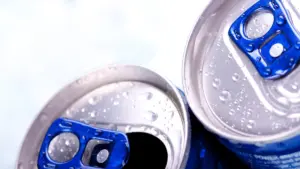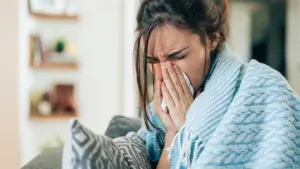Opioid withdrawal is a set of physical and emotional symptoms that happen when someone stops using opioids after using them regularly. Opioids are strong pain-relieving drugs. Some come from natural plant sources. These are called opiates, while others are made in labs and are called opioids. Both types work the same way in the body. People sometimes use the word narcotics to describe either one.
Opioids are often used to treat pain, but when taken for too long or in high doses, the body can become dependent on them. When a person suddenly stops taking these drugs, withdrawal begins.
Knowing the early signs of opioid withdrawal – what they look like, how they feel, when they begin, and how long they last can help you understand what to expect and why medical support can make a big difference.

What Opioid Withdrawal Looks and Feels Like
Opioid withdrawal can feel like a bad flu combined with emotional ups and downs. It can be physically, mentally, and emotionally draining and painful for both the person going through it and the people who care about them.
When Do Symptoms Start?
For short-acting opioids like heroin or hydrocodone, early opioid withdrawal symptoms usually begin within 6 to 12 hours after the last dose. These symptoms often peak between 36 to 72 hours and may last up to a week.1
Early Physical Symptoms
During the first phase of withdrawal, many people feel like they have a bad flu. Common physical signs include:
- Watery eyes and a runny nose
- Sweating and frequent yawning
- Chills or goosebumps
- Muscle aches and joint pain
- Restless legs and trouble sleeping (insomnia)
Your body may feel tired, achy, and uncomfortable. These symptoms are your body’s way of reacting to the sudden lack of opioids.
Mental and Emotional Symptoms
Withdrawal also affects how you think and feel. It’s common to experience:
- Anxiety and nervousness
- Irritability and restlessness
- Mood swings or feeling very low (dysphoria)
- Strong urges or cravings to use opioids again
These emotional changes occur because your brain is trying to balance itself without the drug. Even though these changes are hard, they are a natural part of the process.
When and How to Stop Taking Opioids Safely
The signs it’s time to taper off opioids include:
- You no longer need pain medicine
- You want to try a different way to manage pain
- You’re having serious side effects from the medicine
- The medicine doesn’t relieve your pain like it used to
- Your behavior raises concerns about misusing the drug
- You’re using opioids to feel high or to relax, not just for pain
If you’ve taken opioids for less than 7 to 10 days, you can usually stop taking them once you’ve finished the medications your doctor gave you, or even sooner. If you’re unsure, ask your doctor when it’s safe to stop. Using them too long can lead to serious health problems, so it’s important to stop safely.
Why Medical Supervision Is Important
Having medical supervision, which means being guided by a doctor or trained health professional, is important when it comes to opioid withdrawal.
Here’s why:
1. They Help Manage Your Symptoms
Doctors can give you safe medications to ease your pain, anxiety, nausea, and trouble sleeping. This makes the withdrawal process more bearable.
2. They Watch for Serious Health Problems
Some people may have serious issues during withdrawal, like dehydration, heart problems, or severe mental distress. A healthcare provider can catch these early and help you stay safe.
3. They Guide You Through Each Step
You don’t have to guess what’s happening to your body. A medical team explains what to expect and helps you understand what’s normal and what’s not.
4. They Support Long-Term Recovery
Withdrawal is just the beginning. Doctors can connect you to support groups, counselors, and treatment programs that help you stay off opioids for good.
5. They Help You Taper Off Safely
If you’ve been using opioids for a long time, it’s not safe to stop suddenly. A doctor can help you slowly lower your dose, so your body has time to adjust.
Trying to quit opioids alone can be overwhelming. With medical help, you’re not just safer, you’re also more likely to succeed.
Opioid Withdrawal Management
There are several ways doctors and nurses can help manage these symptoms, depending on the situation.
1. Helping People Feel Better Quickly
Sometimes, a person is in withdrawal and also has another health problem that needs attention. To treat the withdrawal fast so doctors can focus on other issues, a small dose of an opioid may be given.
- IV morphine is one option, and it works fast.
- Buprenorphine (placed under the tongue) can also work, but only if the person is already showing clear signs of moderate to severe withdrawal. Giving it too early can make symptoms worse.
2. Helping People Go “Cold Turkey”
“Cold turkey” means stopping opioids suddenly without using another drug to ease the process. This method can cause strong symptoms.
To make this process more bearable, doctors may:
- Create a calm environment (low lights, less noise)
- Give fluids to treat dehydration
- Use medications like:
- Clonidine for shakiness and high heart rate
- Anti-nausea meds to help with vomiting
- Anti-diarrhea meds like loperamide or bismuth
- Gabapentin to help with restlessness or pain
- Clonidine for shakiness and high heart rate
Emotional and mental support, like counseling or therapy, is also very helpful during this time.
3. Detox with Opioid Substitution
Some people choose to enter a treatment program that uses different medications to help them safely stop opioids. This is called opioid substitution therapy.
- Methadone or buprenorphine is commonly used in these programs.
- These medications help reduce withdrawal symptoms and cravings.
- If someone misses a dose in their treatment program and starts to feel sick, a replacement dose may be given, usually after confirming with the clinic.
Hospitals can give a one-time dose of methadone to help someone feel better until they can get to a treatment center. Special rules apply, but hospital doctors can give these medications in emergencies even if they’re not part of a treatment clinic.
Doctors often use a scoring sheet called the Clinical Opiate Withdrawal Scale (COWS) to measure how bad a person’s symptoms are. It helps them decide what kind of care is needed.
Next Steps Toward Long-Term Healing
Going through opioid withdrawal is just the first step. Healing takes time, and it’s important to have a plan for what comes next. There are different ways people can safely go through withdrawal and begin recovery:
- At home, with the help of medications and support from family or close friends. This method can be hard and should be done slowly, with medical advice.
- In a detox center, trained professionals help manage symptoms and provide support in a safe environment.
- In a hospital, if symptoms are very serious or if other health problems are involved.
Staying off opioids for good takes more than just getting through the first few days; it also means getting the right support for your body, mind, and emotions.
If you or someone you love is ready to take the next step, OceanRock Health and South Coast Counseling are here to help. Our supportive team offers treatment and guidance at every stage of recovery. Reach out today and let healing begin.

Source:
- Pergolizzi, J. V., Raffa, R. B., & Rosenblatt, M. H. (2020). Opioid withdrawal symptoms, a consequence of chronic opioid use and opioid use disorder: Current understanding and approaches to management. Journal of Clinical Pharmacy and Therapeutics, 45(5). https://doi.org/10.1111/jcpt.13114







